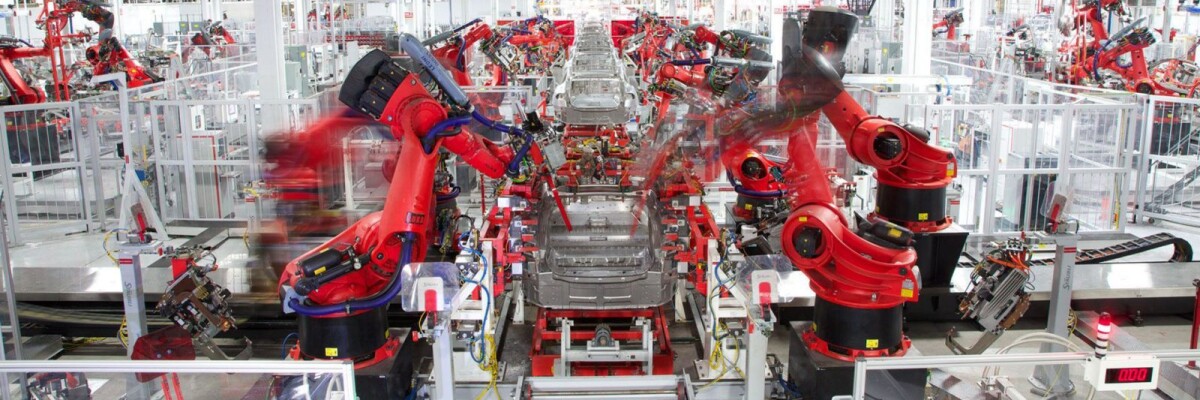Technological progress opens new opportunities for companies, but it also threatens anyone who fails to adapt to new market conditions. What’s more, the same strategy can be disastrous for a small startup but perfect for a large corporation
The tech world is moving at such a fast pace that the slightest hesitation can put a company out of business.
Over the past ten years, the IT industry has completely displaced both the oil and gas and automotive industries in ratings of the most valuable companies. While Exxon Mobile led the ratings back in 2011, it is now at the bottom of the top ten. After Apple became the first company to reach $1 trillion market cap, a number of others got close to hitting the mark — Alphabet, Amazon, Microsoft. What do these companies have in common? They are all focused in the IT sector.
This rapid redistribution of power goes to show that the future lies in technology. But the current environment is also changing at a rapid pace. Companies following outdated strategies have already lost to their high-tech competitors. The next step will bring fierce competition between the remaining IT companies. The outcome of this fight will be more difficult to predict and will depend on multiple factors including choice of strategy, infrastructure, market share and the technologies themselves.
Thus, technology may be beneficial to humanity in general, but deadly for a particular business.
Global competitors
One likely scenario that almost always forces many companies to exit an industry is the introduction of a new competitor that uses a business model based on service automation. The company offers a universal solution that can be used to conquer the market. This kind of killer feature could really destroy most competitors who fail to offer an alternative solution.
Aggregators serve as a good example. When Uber introduced its expansive vehicle fleet, mobile app and lower prices, people stopped using the services offered by smaller companies or private drivers. Even critics of the company continue to use Uber because this global solution is much more versatile.
But if Uber represents technology conquering outdated business models, there are also a lot of examples of IT companies dominating an industry thanks to a large infrastructure, a monopolized market or marketing wars with competitors.
Apple, Microsoft, Google, Nvidia and many other tech giants have been involved in scandals related to anti-monopoly, tax or patent lawsuits. Unlike highly specialized startups, most corporations are not only interested in developing technologies that will increase their value, but also maintaining leading positions. Managing capitalist interests is often no less important than developing products, and companies resort to all kinds of instruments, while also considering any financial and reputational risks involved.
Global competitors represent a great threat — and not only for small startups. Companies with the means to take over an entire industry (Apple, Microsoft) or service area (Google, Facebook) outmatch even their largest competitors.
Small competitors
It might seem unbelievable, but under the right circumstances even small companies can withstand fierce competition and maybe even force larger players out of the market. ‘Disruptive’ startups win because of high mobility, rejection of outdated and complex infrastructures and adoption of an online-first philosophy. The banking industry serves as an excellent example. Companies like Touchbank don’t need to maintain huge facilities with thousands of employees, underground vaults and other costly elements of a traditional infrastructure. Users can access all financial services via a mobile app, and the company only works with virtual assets.
It’s worth noting that the fintech industry attracts enormous investments, some of them from major banks that are forced to seriously consider the threat of competition from small startups. In a rating of the top 50 most disruptive startups in the world put together by CNBC, the companies on the list have together attracted over $22 billion in investments.
Information as the most valuable resource
Each year sees an ever increasing number of IT security problems. User data breaches, corporate server hacks, phishing and various system vulnerabilities in services and gadgets appear in the news almost every day.
Most experts agree that these problems are natural for high tech companies with large user bases. What’s important is how companies react to such incidents, how quickly they can recover from security breaches, and how advanced their privacy policy is.
Attackers targeting companies usually seek information that can be sold or used to gain access to bank accounts. In case of system vulnerabilities overlooked by developers, company information (such as user data or server access keys) is once again the first to be targeted.
In today’s environment, information is one of the most valuable resources for any tech company. Information offers the opportunity of influencing competitors, creating market forecasts, and making timely investments in new technologies. On the flip side, data leaks can be lethal for business.
Once again, economies of scale come into play. The problems faced by Facebook in 2018 would have killed almost any other company. Or at least, any IT company. User data leaks and Facebook’s dubious data processing policies have resulted in multi-billion losses for the company and Mark Zuckerberg himself. But Facebook has two billion users who have grown accustomed to the website’s outdated interface or simply don’t see any alternatives for personal and professional online communication (in fact, no comparable alternatives exist). That’s why the company will likely survive these severe reputational and financial blows.
Apple is another example. The company can afford to ignore serious vulnerabilities such as the FaceTime bug that allowed users to hear what people were saying before they answered a call. Users are quick to forget their anger when presented with a new device or feature (even a useless one).
How can your business survive?
To survive in the current competitive environment, you need to apply a combination of tactical solutions. There is a general trend in management towards developing automation and a adopting a personalized approach to clients.
A growing number of top decision makers are accepting the need for distributed decision-making systems. An approach based on personal intuition and centralized business management is no longer efficient against small competitors capable of quickly and correctly reacting to changes in the current environment. What’s more — and perhaps even more importantly — a large corporation governed by a single leader (no matter how talented) will be sorely outmatched by a similar company with decentralized governance.
Companies most likely to maintain leading positions are the ones that manage to keep up their authority as innovation leaders and achieve high growth in revenue. These are the qualities that helped Apple overcome that coveted $1 trillion milestone. However, these days even this level of success doesn’t guarantee a company’s long-term success (something Tim Cook might not agree with.)
Companies searching for innovations often discover new markets, and their capital allows them to enter new industries thanks to their own developments or by purchasing competing startups.
Apple and Amazon may have overtaken Shell and BMW, but rapid growth can’t continue if they stick to the same technologies. Humanity’s need for smartphones is not infinite, while sales of smart speakers and other gadgets will someday stop supplying a sufficient level of revenue to invest in future growth and development.
That’s why Apple is actively investing in healthcare and Amazon is doing absolutely everything they can: from delivering products by drone to making their own TV shows.
Companies that might soon outperform current industry leaders include transport services such as Uber, Lyft, Didi Chuxing, automotive manufacturers (Tesla), and undoubtedly fintech companies such as Revolut and Robinhood.
Highly specialized companies working in a single industry are most at risk of being disrupted by new technologies. Big corporations ensure their longevity by investing in a lot of different industries. A lot of them are also likely to develop ‘Microsoft syndrome’ - purchasing a variety of startups, hoping that one of the technologies will take off someday.
Share this with your friends!









Be the first to comment
Please log in to comment